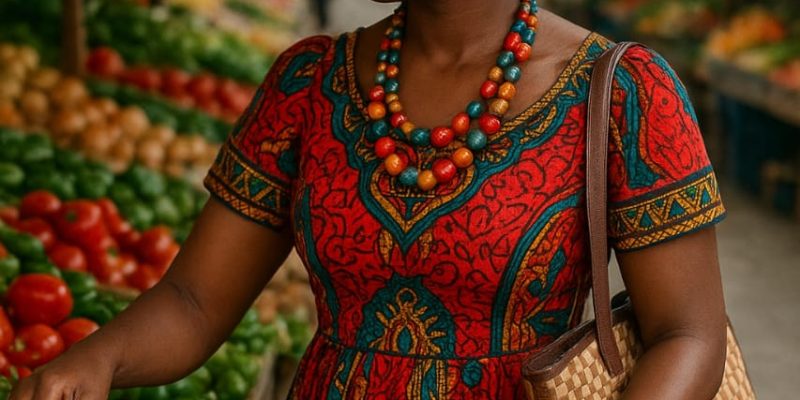Ladies’ Fashion: A Reflection of Identity, Culture, and Change
Ladies’ fashion in Nigeria
Ladies’ fashion is more than just clothing—it’s a dynamic expression of personality, culture, social movement, and identity. Over centuries, women’s fashion has evolved from strictly functional and symbolic attire to a powerful form of self-expression and creativity.

Modern Nigerian ladies’ fashion streetwear style
A Historical Perspective
Historically, women’s clothing was deeply influenced by societal roles and class distinctions. In the 18th and 19th centuries, corsets, full skirts, and elaborate gowns dominated Western fashion, symbolizing femininity, status, and propriety. Meanwhile, traditional garments around the world such as the Indian sari, Japanese kimono, and African kaftan reflected regional identity and craftsmanship.
The 20th century marked a turning point. The flapper dresses of the 1920s symbolized freedom and rebellion, while the post-WWII era brought the hourglass silhouette back into style. The late 1960s and 1970s gave rise to bohemian and unisex fashion, influenced by counterculture and feminist movements.
READ ALSO: Migration: Moving Beyond Borders and Misconceptions
Modern Trends and Influences
Today, ladies’ fashion is as diverse as the women who wear it. The modern woman can choose from an endless variety of styles—from streetwear and athleisure to haute couture and sustainable fashion. Social media, fast fashion, and celebrity culture play massive roles in shaping trends, but there’s also a growing movement toward individuality, minimalism, and conscious consumption.
Popular styles include:
- Casual chic: Simple, comfortable pieces paired with stylish accessories.
- Boho (bohemian): Flowy fabrics, earthy tones, and ethnic patterns.
- Streetwear: Urban-inspired looks combining comfort with bold branding.
- Power dressing: Structured blazers, tailored pants, and bold color blocks symbolizing empowerment.
- Sustainable fashion: Eco-friendly materials, slow production, and timeless designs.
The Role of Fashion in Empowerment
Fashion has increasingly become a tool for empowerment and activism. Women use fashion to break stereotypes, challenge beauty standards, and celebrate body diversity. Designers are more inclusive in their sizing, gender representation, and cultural narratives.
Events like fashion weeks and red carpets serve as platforms for not only showcasing style but also voicing political and social messages.
Ladies’ fashion is constantly evolving, influenced by global cultures, social change, technology, and individual creativity. Whether it’s a bold runway piece or a simple everyday outfit, what women wear continues to be a reflection of who they are and the world they live in.
Follow Splash News for more




